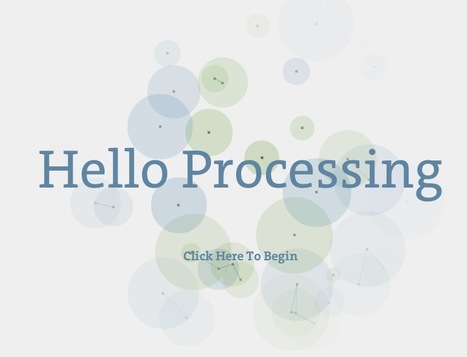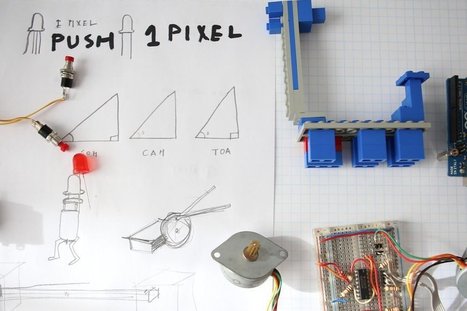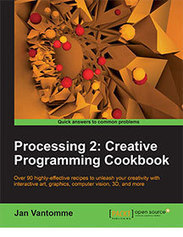 Your new post is loading...
 Your new post is loading...

|
Scooped by
Jacques Urbanska
February 4, 2014 3:03 PM
|
My NetEnvironment project. Using Processing and the FBI's Carnivore source code to generate a real time 3D environment that reflects current traffic on a network. The code sniffs for all TCP/UDP connections and plots machines (cubes) and then draws connections between two machines (curves). In this version higher port numbers (I had BitTorrent running) are higher in space, and lower port number are lower in space (take a close look when I refresh The New York Times website). Super basic and super slow at this point, but hey, it works!

|
Scooped by
Jacques Urbanska
January 30, 2014 12:59 PM
|
Paye ton projet se penche sur des projets créatifs prometteurs ! Grâce aux plateformes de financement participatif, vous pouvez les soutenir, et on vous dit pourquoi. Aujourd'hui, focus sur le projet geek et mignon d'un livre pour enfants destiné à apprendre le code informatique aux plus jeunes. Le projet: financer la production de Hello Ruby, un livre d'histoire accompagné d'un cahier d'exercices pour initier les plus jeunes (entre 4 et 7 ans) aux rudiments du code informatique, dans le cas présent le langage Ruby.

|
Scooped by
Jacques Urbanska
January 9, 2014 11:52 AM
|
Programming can be fun and a very creative activity. Playing with graphics and sound is a great way to get started. That's how I learnt programming and math: by experimenting and building things I could see and hear. This is my attempt to share with you how I learnt coding. Most episodes include a very short program that tries to explain one idea, and builds on top of previous episodes. The first episodes talk about a programming language calledProcessing. It's very easy to get started with it. The newer episodes combine graphics generated with Processing and sound produced with the SuperCollider programming language. Have fun mixing code and your creativity!

|
Scooped by
Jacques Urbanska
December 14, 2013 4:01 AM
|
This is a collection of code samples for physical computing, on a variety of different platforms. More thorough introductions to the platforms involved can be found on my main physical computing site. The examples here assume you know the basics, and are ready to program and/or build. You’ll also find links to other code samples here as well. If you’re looking for an introduction to electronics or physical computing, check out the pages on electronics, microcontrollers, input & output, and others for my class notes on those subjects. You’l find links in the menu to your left. I’ll also post resources for building things and buying things here; in other words, things that used to be on my resources blog. If you don’t find what you’re looking for, you might also check my general blog which needs a name, where I put more recent links, topical links that are likely to be irrelevant in time, and things that don’t fit into the categories here.

|
Scooped by
Jacques Urbanska
December 6, 2013 8:48 PM
|
Pure Data (en abrégé pd) est un logiciel de programmation graphique pour la création musicale et multimédia en temps réel. Il permet également de gérer des signaux entrants dans l’ordinateur (signaux de capteurs ou événements réseau par exemple) et de gérer des signaux sortants (par des protocoles de réseau ou protocoles électroniques pour le pilotage de matériels divers). Ce premier après-midi amènera les participants à faire leur premier pas en programmation. CALENDRIER
samedi 7 décembre de 14 h à 17 h - Initiation
samedi 21 décembre de 14 h à 17 h - Approfondissement
samedi 11 janvier de 14 h à 17 h - Pure Data + Arduino

|
Scooped by
Jacques Urbanska
December 4, 2013 9:47 AM
|

|
Scooped by
Jacques Urbanska
December 2, 2013 7:15 AM
|
Le projet CYBERPACK vise à développer la créativité à travers la mise en œuvre de projets basés sur les technologies numériques utilisées quotidiennement par les jeunes (son, image, 3D, web, Twitter, Facebook, Kinect, etc.). Il a également pour objectif d’encadrer les animateurs/formateurs/enseignants qui mettront en œuvre ces projets. Par une suite d’expérimentations pratiques à la complexité croissante, les utilisateurs vont apprendre les bases de la programmation, développer une logique de réflexion mais également un sens artistique. Pour cela, ils découvriront le logiciel gratuit et open source : Processing. Il est utilisé par de jeunes créateurs numériques dans le monde entier et permet d’aborder très rapidement la programmation temps-réel et donc d’accéder à l’interactivité. Il permet aussi la création graphique et la géométrie, l’animation 2D et 3D, la génération de son, le traitement de données et la data visualisation, la reconnaissance faciale, la physique, etc.

|
Scooped by
Jacques Urbanska
November 24, 2013 10:01 AM
|
Si le modèle d’éducation finlandais est souvent pris en exemple, celui-ci va connaître une nouvelle amélioration dans les prochaines semaines puisque les écoles primaires proposeront aux élèves de s’initier au codage et à la programmation dès le plus jeune âge. Une bonne manière assurément de comprendre le plus tôt possible les évolutions technologiques qui nous entourent…

|
Scooped by
Jacques Urbanska
November 10, 2013 8:34 AM
|
L’objectif de ce tutoriel est de combiner twitter et processing pour comprendre comment les deux fonctionnent ensemble. Nous verrons comment récupérer des tweets à l’aide d’une recherche puis de les afficher avec les informations de leurs emettdeurs. Pour ce faire nous allons réaliser un mur de tweets dynamique. Mise en placeInstaller la librairie Twitter4J Twitter4J n’est pas une librairie Processing, c’est une librairie Java. Processing étant en soit une sur-couche de java, cela ne pose pas de problème quant à son utilisation, mais rend son installation plus compliquée. Deux méthodes s’offrent à vous pour l’installation de la librairie. Nous allons les couvrir et voir les avantages ainsi que les inconvénients. Mais dans un premier temps il vous faut télécharger Twitter4J ici : http://twitter4j.org/en/ et bien sûr décompresser le dossier avant de passer à l’étape suivante. ...

|
Scooped by
Jacques Urbanska
September 5, 2013 12:40 PM
|
FB Resistance is a research initiative and hands-on workshop series to rethink and change the frame that Facebook is setting for us. Facebook is defining our identity and social interactions in digital space. The code is the law (A quote by Lawrence Lessig). What would you do if you could change it? This workshop shows you how. Let's inspire each other and work on concepts to alter Facebook.com!!

|
Scooped by
Jacques Urbanska
July 19, 2013 7:02 AM
|
This is an open call for creative ideas for applying Linked Media technologies, in particular referring to those developed within the LinkedTV project, for developing new and innovative forms of entertainment or art. Successful applicants will be supported by LinkedTV to present the concept/scenario at a leading multimedia event, and develop it into a demonstrable prototype. LinkedTV is a project looking at technology to seamlessly interlink TV and Web content across devices and screens. It develops solutions to analyse (visual features, speech, or transcriptions/subtitles of) video streams and annotate their parts with concepts - which may be any person, place, event, object or thing that could be perceived by a viewer of that video. In turn, it links on the basis of those concepts the video parts to other content from the Web - text, images, audio, video - and presents those links for browsing in an interactive video player. We are looking for concept/scenario papers that describe novel concepts for new forms of interactive entertainment or art enabled by LinkedTV, making use of technologies for: Content Analysis (visual, audio, related text),Semantic Web (conceptual annotation, reasoning via ontological knowledge),Personalization (filtering of concepts or content links, adaptation in the user interface),New forms of Human-Machine Interaction (gesture or voice control, attention or behavioural tracking etc.), and demonstrating this on interesting original and openly available video/web content. Current research groups and projects aim at defining the future of the TV, taking into consideration the wide spreading use of the second screen, and behavioral and social interaction inherited from highly interactive video games merging with on-demand video services, and complex storytelling technologies out of which creative trains of thoughts emerge. New media artists bring meaning to technologies by adapting or repurposing these, by owning glitches, and by instilling into their artworks cues of social and political issues of the current, past and future days. The purpose of this MMM 2014 special session is to push the converging boundaries of internet and TV technologies beyond living rooms. Creative artists are invited to challenge the technologies delivered from the LinkedTV project by imagining scenarios of interactive installations and performances, with rich media content navigation/recomposition, querying the Internet for unexpected connexions. Please consult the submission and technologies pages for further information.

|
Scooped by
Jacques Urbanska
June 21, 2013 11:15 AM
|
Initiated by the NUMEDIART institute, the CUTE workshop intends to gather culture and cutting edge technology. A full day (2nd of July 2013) hands on master class is proposed with no additional cost to people who submitted papers to Intetain 2013.
Location: 31, boulevard Dolez
FREE
The 4 exciting tracks of the master class are listed bellow : Behaviour tracking and advanced MOCAP In this class you will discover how to track and analyse people motion and behaviour from body to eyes, passing by the face.Body motion captureFace motion captureEye tracking Hands on Performative Speech Synthesis with MAGE MAGE is the first platform for reactive programming of speech synthesis and recently released version 2.0. You will be able to modify speech expressivity in real time and put your hands on the MAGE platform.Smart Room In this class you will discover how to use the Kinect sensor to build advanced explicit and implicit interaction in a real smart environment: the TV setup.Kinect-based explicit interactionKinect-based implicit interaction Sense & Perform You will be able to put hands on the use of sensors for interactive performances or musical virtual instruments. Beside controlling musical processes, sensors can also be used to control other elements of an interactive performance.

|
Scooped by
Jacques Urbanska
June 16, 2013 2:28 PM
|
Truc 2 geek, les choses sont claires : la programmation, les bases de données, la robotique seront le coeur de cet espace.
Loin d’être un expert, je suis simplement curieux, je cherche des infos, j’essaie, je recommence… On trouve beaucoup d’informations et tutoriels sur le net, et j’aime compléter ça par un bon livre pour avoir une base solide.
Mon but est d’apprendre à utiliser plusieurs langages de programmation/logiciels et pourquoi pas, un jour, reprogrammer le monde ;-)
En attendant, et pour résumer l’objectif de ce blog en une ligne : je souhaite faire partager mon apprentissage.
|

|
Scooped by
Jacques Urbanska
February 4, 2014 2:42 PM
|
A short video showing recent work done by the openFrameworks community. Its by no means complete and we'll be doing new showreels over the coming months with much more of a comprehensive and reflective selection. The clips were pulled algorithmically from vimeo videos tagged 'openFrameworks'
Thanks to everyone using OF, contributing code and inspiring the community with amazing work.

|
Scooped by
Jacques Urbanska
January 27, 2014 8:30 AM
|
Atelier d'introduction au logiciel Processing (pour débutants). Le G.R.L Fr vous accueille et explore avec vous le monde du graffiti numérique : décryptez les nouvelles technologies, testez, expérimentez et créez vos propres outils de réappropriation de l'espace urbain.

|
Scooped by
Jacques Urbanska
December 19, 2013 4:39 PM
|
Depuis que l’électronique existe, sa croissance est fulgurante et continue encore aujourd’hui. Si bien que faire de l’électronique est devenu accessible à toutes personnes en ayant l’envie. Mais, le manque de cours simples sur le net ou en libraire empêche la satisfaction des futurs électroniciens amateurs ou professionnels et parfois empêche certains génies à se révéler. C’est pourquoi je souhaite intervenir contre cette insuffisance et écris ce cours sur l’électronique et la programmation. Ce que nous allons apprendre aujourd'hui est un mélange d'électronique et de programmation. On va en effet parler d'électronique embarquée qui est un sous-domaine de l'électronique et qui a l'habileté d'unir la puissance de la programmation à la puissance de l'électronique. ...
tutorial Par Simon Landrault et Hippolyte Weisslinger

|
Scooped by
Jacques Urbanska
December 8, 2013 1:03 PM
|
One of the topics my daughters and two of their friends asked me to do this year in our home school is programming. They call it Code Club, and we have been learning HTML, JavaScript, CSS together. We’ve been using Thimble to make things like this visualization of Castles around the world. It’s been a lot of fun. This past week I introduced them to the Processing programming language usingthis great new interactive tutorial. It was made for Computer Science Education Week and the Hour of Code, in which many organizations (including Mozilla Webmaker, who is also participating) have put together tutorials and learning materials for new programmers. ...

|
Scooped by
Jacques Urbanska
December 5, 2013 3:31 PM
|
Duration is a timeline for creative coding. Create live performances, interactive installations, and music visualizations by synchronously composing servos, lighting, and projection.
Duration integrates with
OpenFrameworks, Processing, Cinder, vvvv, Unity3d, Quartz, and any other OSC enabled environment.
co-developed with YCAM InterLab

|
Scooped by
Jacques Urbanska
December 3, 2013 10:53 AM
|
Conférence - PROCESSING [ART] : INTRO [] LES JOURNEES DU CODE CREATIF 2ème éd. - STEREOLUX Nantes - JEU. 30 JANV - Stereolux / La Fabrique

|
Scooped by
Jacques Urbanska
November 27, 2013 4:48 AM
|
This sequence of tutorials was produced by the Processing Foundation as a part of Code.org's Hour of Code 2013 initiative to introduce students to computer programming. The program launched during Computer Science Education Week, 9-15 December 2013 with the goal of giving millions of students the opportunity to explore coding as a way of thinking and making. Our contribution uses Processing, a programming platform designed to bring programming to visual arts communities and to bring techical fields closer to the visual arts. Processing is used to teach programming principles within the context of visual media. The Processing software is free to download and is open source. Visit the Processing website to download it and learn more. ...

|
Scooped by
Jacques Urbanska
November 16, 2013 5:50 PM
|
We’re proud to look back at a successful and sold-out second instalment of Coded Matter(s). For those who were unable to attend we asked Kimberly Waldbillig, a keen blogger with a MA in New Media & Digital Culture, to do a write-up of the afternoon. If you don’t like words, the full set of photos can be found on our Flickr account. If you do like words, read on! And in any case: stay tuned for the event video coming soon.
The introduction from director of STEIM Dick Rijken was a layman’s primer to the ideas that are keeping today’s sound hackers awake into the wee hours of the night. He questions the roles of composer and performer in the new worlds into which digital electronics can bring us. Rijken reiterates the paradoxical point that code concedes flexibility at the same time that it demands autonomy. That’s precisely what the Coded Matter(s) series is designed to investigate: the definition, categorisation and evaluation of hybrids which emerging in the atemporal algorithmic mess that is our sonic reality. ...

|
Rescooped by
Jacques Urbanska
from music innovation
November 9, 2013 2:56 PM
|
Patchblocks’ creator says he wanted this hardware sound construction set to be like a combination of Max, Arduino, Moog, and LEGO. And in a novel, crowd-funded project, you get a set of units that seem very much like that.
Via Simon Decreuze

|
Scooped by
Jacques Urbanska
August 18, 2013 7:50 AM
|
Trying to bridge the gap between computer programming, engineering, design and art, four instructors in Brooklyn have started a new school to help students revel in the poetic possibilities of technology. New computer science graduates jumped by nearly 30 percent last year, and a bevy of professionally oriented programming courses have erupted to teach start-up ready skills like, “How to Build a Mobile App.” So it makes sense that programming is widely considered to be this generation’s “Plastics” — a surefire professional skill that can bring success, security and maybe even stock options. But fewer people talk about how programming and engineering can be used for pleasure, beauty or surprise. Now, four people with a variety of backgrounds — in computer science, art, math and design — have banded together in Brooklyn to rethink how programming is taught.

|
Scooped by
Jacques Urbanska
June 24, 2013 7:53 AM
|
When I started writing my book in December 2011, Processing 2 was still in its alpha stage. I had the plan to write about a lot of new features, but eventually left them out of the book because they weren’t implemented, or ready for prime time. But now that Processing 2.0 is out of beta, it’s time to write about the things that didn’t make the book. Here’s what you can expect: I’ll move through the book from beginning to end, and post the missing parts on a regular basis right here. We’ll start with some basic 2D drawing, and move on to 3D, working with data, using shaders… The source code for this series of tutorials will be available on GitHub.

|
Scooped by
Jacques Urbanska
June 20, 2013 2:57 PM
|
Why is software so hard? Hard to make well. Hard to deliver on time. Hard to use. Our civilization runs on software. Yet the art of creating it continues to be a dark mystery, even to the experts, and the greater our ambitions, the more spectacularly we seem to fail. Dreaming in Code: Two Dozen Programmers, Three Years, 4,732 Bugs, and One Quest for Transcendent Software sets out to understand why, through the story of one software project -- Mitch Kapor's Chandler, an ambitious, open-source effort to rethink the world of e-mail and scheduling.
|



 Your new post is loading...
Your new post is loading...


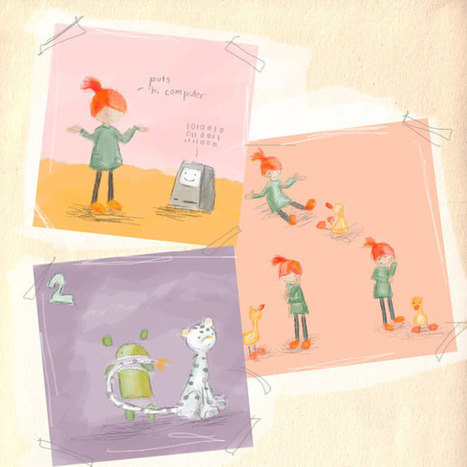

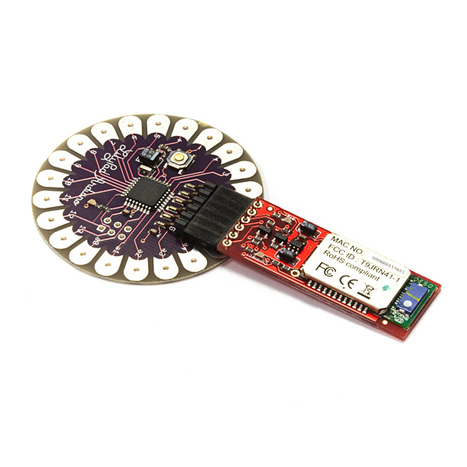
![Pure Data en trois étapes - Espace Jean-Roger Caussimon [MJC] | Digital #MediaArt(s) Numérique(s) | Scoop.it](https://img.scoop.it/TA5qQ_TUuCaZJ23vEOarZTl72eJkfbmt4t8yenImKBVvK0kTmF0xjctABnaLJIm9)


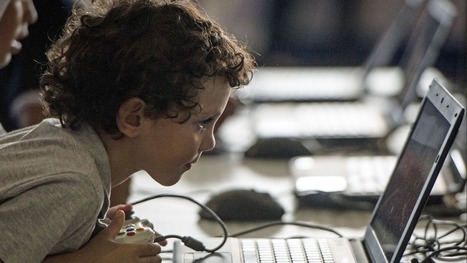



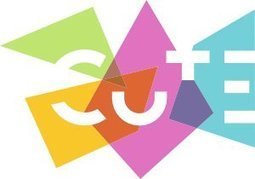
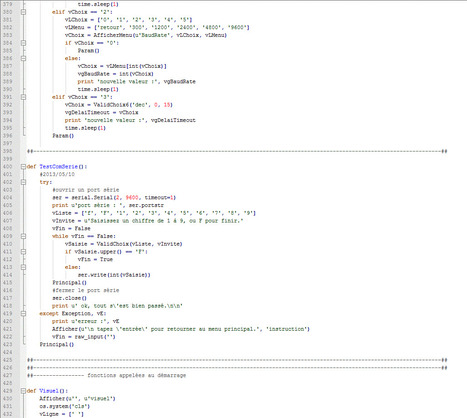
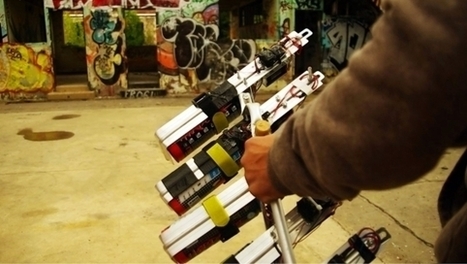
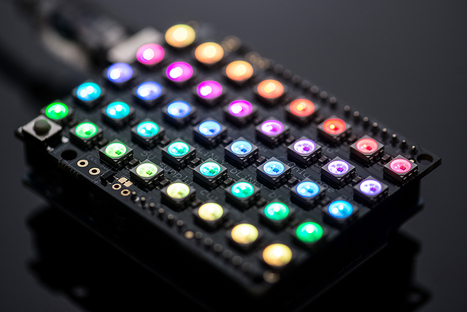
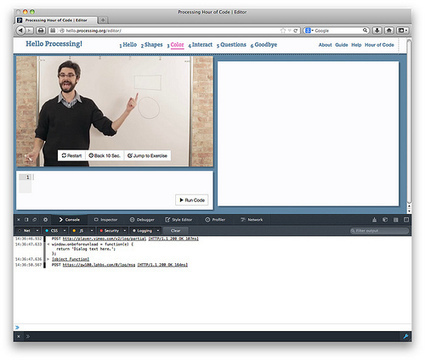

![#PROCESSING [ART] : Intro, les journées du code créatif - Strereolux Nantes | Digital #MediaArt(s) Numérique(s) | Scoop.it](https://img.scoop.it/SIrAVixghvCp2AK8A7frMzl72eJkfbmt4t8yenImKBVvK0kTmF0xjctABnaLJIm9)
